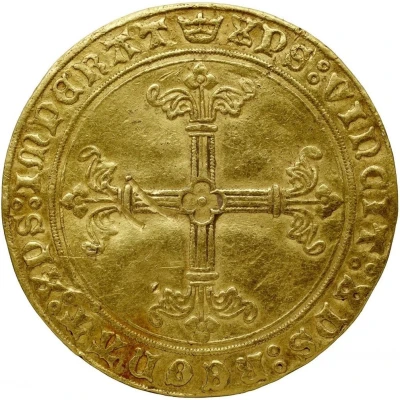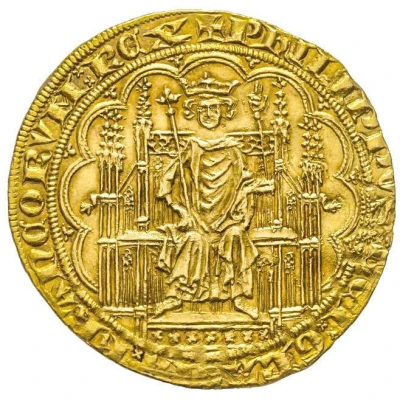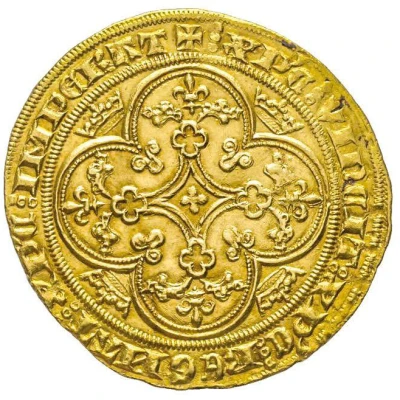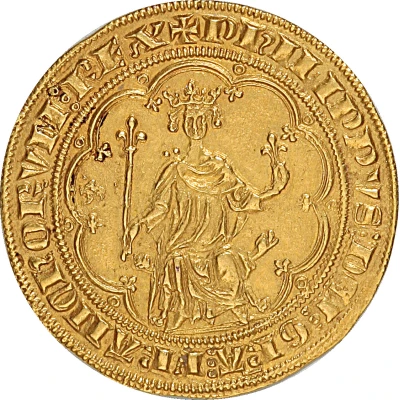
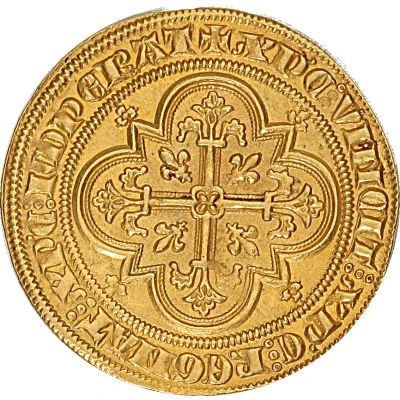

© Heritage Auctions
Masse d'or - Philippe IV ND
| Gold (.916) | 7.04 g | 31.5 mm |
| Issuer | France |
|---|---|
| King | Philip IV (Philippe IV) (1285-1314) |
| Type | Standard circulation coin |
| Years | 1296-1314 |
| Value | 2 Gold Ecus |
| Currency | Livre tournois (1204-1795) |
| Composition | Gold (.916) |
| Weight | 7.04 g |
| Diameter | 31.5 mm |
| Shape | Round (irregular) |
| Technique | Hammered |
| Orientation | Variable alignment ↺ |
| Demonetized | Yes |
| Updated | 2024-10-04 |
| Numista | N#129313 |
|---|---|
| Rarity index | 95% |
Reverse
Cross fleury in quadrilobe, fleur de lis in angles
Script: Latin
Lettering: + XP’C: VINCIT: XP’C: REGNAT: XP’C: IMPERAT
Comment
Philip IV needed a big income for his Kingdom. First, because of the war against Flanders and England; and second because he had some tentatives of power centralization that required a significant amount of money. As a way to finance his expenses, Philip IV issued many gold and silver coins; in fact, he was the first French king to issue gold coins for circulation. For this reason, he is known as “le roi aux monnayeur” (“the King made minter”). Here and here you can find more information.Regarding the masse d’or, they were issued between 1296 and 1310. In that time France was fighting against Flanders and England. Issuing gold coins was yet another way to get money to finance such war. The masse d’or were issued as “false” Double-Florin: their weight was the same as two florins, but their fineness was 22 karats instead of 24 karats. Thus, they represent a clear attempt by Philip IV to obtain revenues through minting. The design of the coin is also remarkable as it had a big influence in the future gold coinage of France and other countries like Castilla, where kings were represented in a throne.
Interesting fact
One interesting fact about the Masse d'or - Philippe IV ND (1296-1314) coin from France is that it was issued during the reign of King Philip IV, also known as Philip the Fair, who was known for his efforts to consolidate his power and centralize the French government. This coin, which was minted in gold (.916) and weighs 7.04 grams, was likely used as a means of exchange and commerce during this time period.

